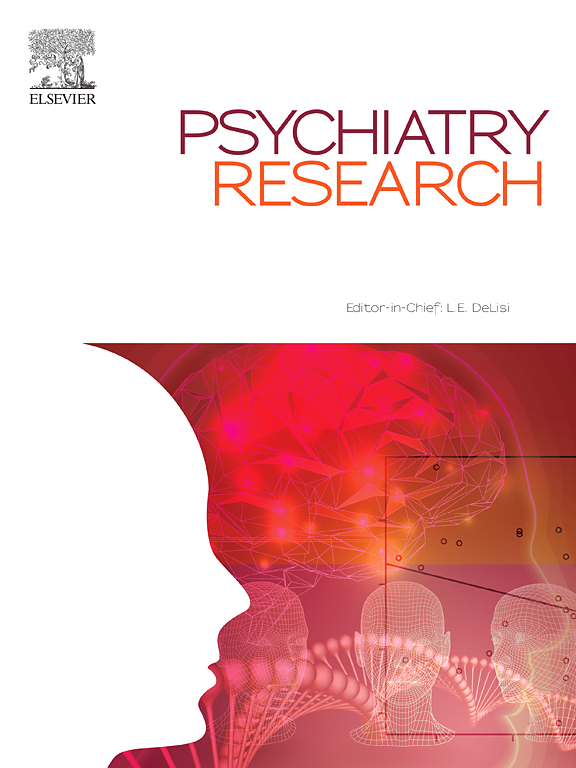Medicinal cannabis in the management of anxiety disorders: A systematic review
IF 3.9
2区 医学
Q1 PSYCHIATRY
引用次数: 0
Abstract
Background
With rising anxiety disorder diagnoses, many individuals are seeking alternatives to standard pharmacotherapies, like medicinal cannabis. This systematic review focuses exclusively on anxiety-related disorders and examines a wide range of cannabis-based preparations and interventions.
Method
We searched MEDLINE, EMBASE, CINAHL, and PsycInfo (October–December 2023) for peer-reviewed empirical studies, excluding case series, case studies, and review papers. Inclusion criteria were studies on adults (18+ years) diagnosed with anxiety-related disorders, examining the efficacy or effectiveness of medicinal cannabis. Studies on recreational cannabis or cannabis-use-disorder were excluded. The MASTER and QualSyst tools were used to assess bias.
Results
Fifty-seven studies met the inclusion criteria: 40 % cohort (n = 23), 30 % randomised controlled trials (n = 17), 18 % cross-sectional (n = 10), 12 % qualitative or other designs (n = 7). The MASTER scale revealed a high risk of bias, with a mean score of 62.9 (out of 100) due to inadequate reporting. Among the 13 highest-quality studies, 70 % (n = 9) reported a positive improvement for disorders including generalised anxiety disorder (GAD), social anxiety disorder (SAD), and post-traumatic stress disorder (PTSD). 30 % (n = 4) reported a negative result for conditions like obsessive-compulsive disorder, trichotillomania, test anxiety and SAD. Over 90 % of all studies, including lower quality studies, reported positive outcomes for CBD and THC-based cannabis. However, 53 % (n = 30) either omitted, or included self-reported data on either form and/or dosage.
Conclusion
Medicinal cannabis demonstrates potential in reducing anxiety symptoms, but the long-term benefits and overall impact on quality of life remain unclear. Further high-quality, longitudinal research with standardised dosing is needed.
药用大麻在焦虑症管理中的应用:系统综述
随着焦虑症诊断的增加,许多人正在寻找标准药物治疗的替代品,比如药用大麻。本系统综述专门关注焦虑相关障碍,并检查了广泛的基于大麻的制剂和干预措施。方法检索MEDLINE、EMBASE、CINAHL和PsycInfo(2023年10 - 12月)的同行评议的实证研究,不包括病例系列、案例研究和综述论文。纳入标准是对诊断为焦虑相关障碍的成年人(18岁以上)的研究,检查药用大麻的疗效或有效性。娱乐性大麻或大麻使用障碍的研究被排除在外。使用MASTER和QualSyst工具评估偏倚。结果57项研究符合纳入标准:40%队列(n = 23), 30%随机对照试验(n = 17), 18%横断面试验(n = 10), 12%定性或其他设计(n = 7)。MASTER量表显示出较高的偏倚风险,由于报告不足,平均得分为62.9分(满分100分)。在13项质量最高的研究中,70% (n = 9)报告了对包括广泛性焦虑症(GAD)、社交焦虑症(SAD)和创伤后应激障碍(PTSD)在内的疾病的积极改善。30% (n = 4)报告在强迫症、拔毛癖、考试焦虑和SAD等情况下的阴性结果。超过90%的研究,包括质量较低的研究,都报告了CBD和四氢大麻酚的积极结果。然而,53% (n = 30)的研究要么省略了,要么包括了关于形式和/或剂量的自我报告数据。结论药用大麻具有减轻焦虑症状的潜力,但其长期效益和对生活质量的总体影响尚不清楚。需要进一步进行高质量的、采用标准化剂量的纵向研究。
本文章由计算机程序翻译,如有差异,请以英文原文为准。
求助全文
约1分钟内获得全文
求助全文
来源期刊

Psychiatry Research
医学-精神病学
CiteScore
17.40
自引率
1.80%
发文量
527
审稿时长
57 days
期刊介绍:
Psychiatry Research offers swift publication of comprehensive research reports and reviews within the field of psychiatry.
The scope of the journal encompasses:
Biochemical, physiological, neuroanatomic, genetic, neurocognitive, and psychosocial determinants of psychiatric disorders.
Diagnostic assessments of psychiatric disorders.
Evaluations that pursue hypotheses about the cause or causes of psychiatric diseases.
Evaluations of pharmacologic and non-pharmacologic psychiatric treatments.
Basic neuroscience studies related to animal or neurochemical models for psychiatric disorders.
Methodological advances, such as instrumentation, clinical scales, and assays directly applicable to psychiatric research.
 求助内容:
求助内容: 应助结果提醒方式:
应助结果提醒方式:


